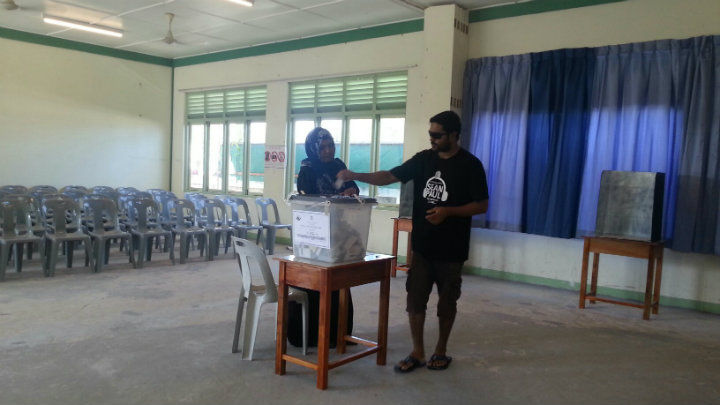Council posts down to 653
The number of city, atoll, and island councillors to be elected in the upcoming local council elections is 653, the elections commission announced Saturday, significantly fewer than the present count of 1,095 councillors.

23 Oct 2016, 09:00
The number of city, atoll, and island councillors to be elected in the upcoming local council elections is 653, the elections commission announced Saturday, significantly fewer than the present count of 1,095 councillors.
According to the electoral body, 563 councillors will be elected to 179 island councils, 67 councillors to 18 atoll councils, and 23 councillors to three city councils.
Some 946 island councillors, 132 atoll councillors, and 17 city councillors were elected for three-year terms in January 2014.
The changes come after the parliament revised the landmark 2010 Decentralisation Act to reduce the number of councillors from five to three for islands with a population of less than 3,000.
Become a member
Get full access to our archive and personalise your experience.
Already a member?
Discussion
No comments yet. Be the first to share your thoughts!
No comments yet. Be the first to join the conversation!
Join the Conversation
Sign in to share your thoughts under an alias and take part in the discussion. Independent journalism thrives on open, respectful debate — your voice matters.




